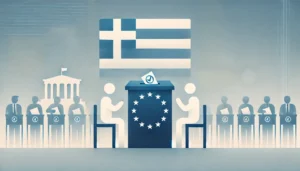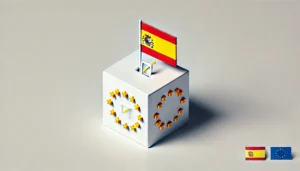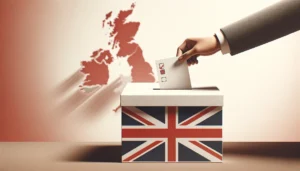Articles & News
- Inicio
- Blog
25. abril 2024
EU-Policy
Navigating Slovakia’s Political Maze: Disinformation, Power Plays, and the Road Ahead

Following Slovakia’s recent presidential elections, the results saw the former Speaker of Parliament Peter Pellegrini (Hlas-SD/Voice-Social Democracy) winning against pro-West career diplomat Ivan Korčok. The results give Prime Minister Robert Fico’s ruling coalition total control over the executive and legislative branches of government.
In Slovakia, the president has limited powers that include appointing ambassadors, returning legislation to parliament and issuing amnesties. However, during the political debates before the elections, Slovakian voters were flooded by disinformation and false claims, mainly on social media. Such disinformation campaigns are not anything new in Slovakia, however, in recent years, starting with the Covid-19 pandemic, the spread of disinformation became a norm.
Since the beginning of the COVID-19 crisis, Slovakia has been inundated by spread of false narratives about public health measures, vaccine effectiveness, and government actions, which became tools used by political figures to gain power. The conflict between Ukraine and Russia, already contentious, became further clouded by misinformation, escalating tensions and dividing the public.
The Covid-19 pandemic is still being used for political purposes, which can be evidenced by Peter Pellegrini, who used the pandemic, which unfolded during the previous 2020-2023 government in which Korčok served as foreign minister to gain votes from pensioners who were critical to his victory.
During a conference just before the second round of presidential elections, he pointed out the hardships faced by this vulnerable group during the pandemic, emphasizing the challenges of being confined to their homes. Pellegrini drew attention to the freeze on minimum pensions, which, in his view, barely provided for their survival.
After the speech of Peter Pellegrini, members of the ruling coalition, who control ministries responsible for benefit distribution, made significant promises to various groups. Erik Tomáš, Minister of Social Affairs and member of the same political group as Mr. Pellegrini, pledged one-time payments and bonuses to pensioners, amounting to €300 and a Christmas bonus of €600, respectively.
Defense Minister Robert Kaliňák announced a €500 spring bonus for approximately 20,000 soldiers and ministry employees, while Interior Minister Matúš Šutaj Eštok promised a similar €500 bonus to nearly 24,000 police and firefighters.
These promises, made amidst political maneuvering, not only raise concerns about the fairness of the electoral process but also highlight the coalition’s strategic use of benefits distribution to secure electoral victory. Such tactics blur the line between governance and electoral advantage, underscoring the complex interplay of disinformation, financial incentives, and political power in shaping electoral outcomes in Slovakia.
The impact of Slovakia’s electoral struggle extends beyond its borders, serving as a warning for democracies worldwide. In an age where information is weaponized, the erosion of truth poses a serious threat to democracy. Slovakia’s experience highlights the urgent need for action to combat disinformation, strengthen democratic institutions, and protect the integrity of elections.
As Slovakia grapples with the aftermath of its recent presidential election, questions linger about the broader implications of the results. How will these electoral maneuvers shape Slovakia’s standing in key international institutions like NATO and the EU? Moreover, what impact will they have on relations with other Western powers? As the dust settles and the new political landscape takes shape, the answers to these crucial questions remain uncertain, leaving Slovakia and the international community alike on the edge of anticipation.

Author:
Tomáš
Hagovský
Publicaciones recientes
-
 15 Jul 2024Navigating Discontent: Greek Parties Reframe European Election Results
15 Jul 2024Navigating Discontent: Greek Parties Reframe European Election Results -
 26 Jun 2024Shaping the Ballot: The Influence of National Issues on Spain's European Election Results
26 Jun 2024Shaping the Ballot: The Influence of National Issues on Spain's European Election Results -
 21 May 2024Local Elections in England: an impending change of direction in UK health policy?
21 May 2024Local Elections in England: an impending change of direction in UK health policy? -
 25 Abr 2024Navigating Slovakia's Political Maze: Disinformation, Power Plays, and the Road Ahead
25 Abr 2024Navigating Slovakia's Political Maze: Disinformation, Power Plays, and the Road Ahead -
 10 Abr 2024Navigating Digitalisation - Challenges and Progress in German Healthcare
10 Abr 2024Navigating Digitalisation - Challenges and Progress in German Healthcare
